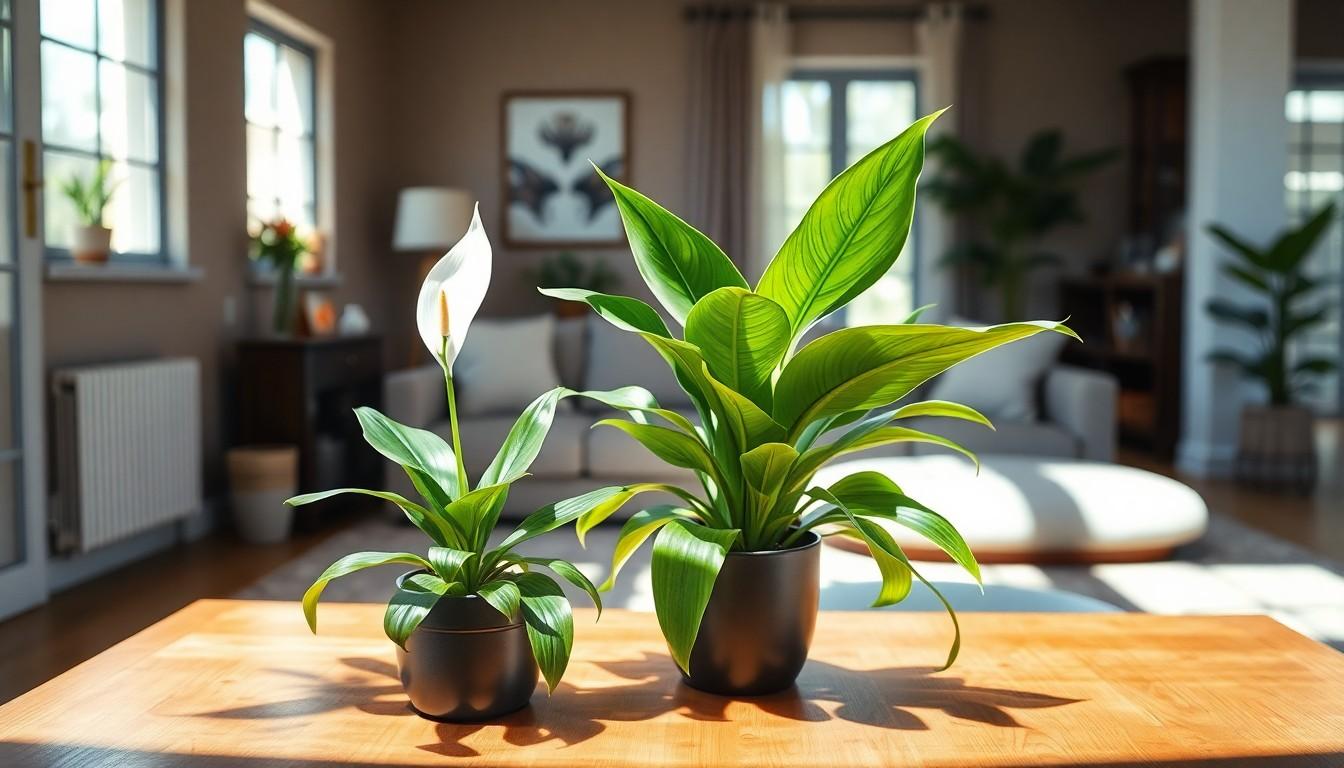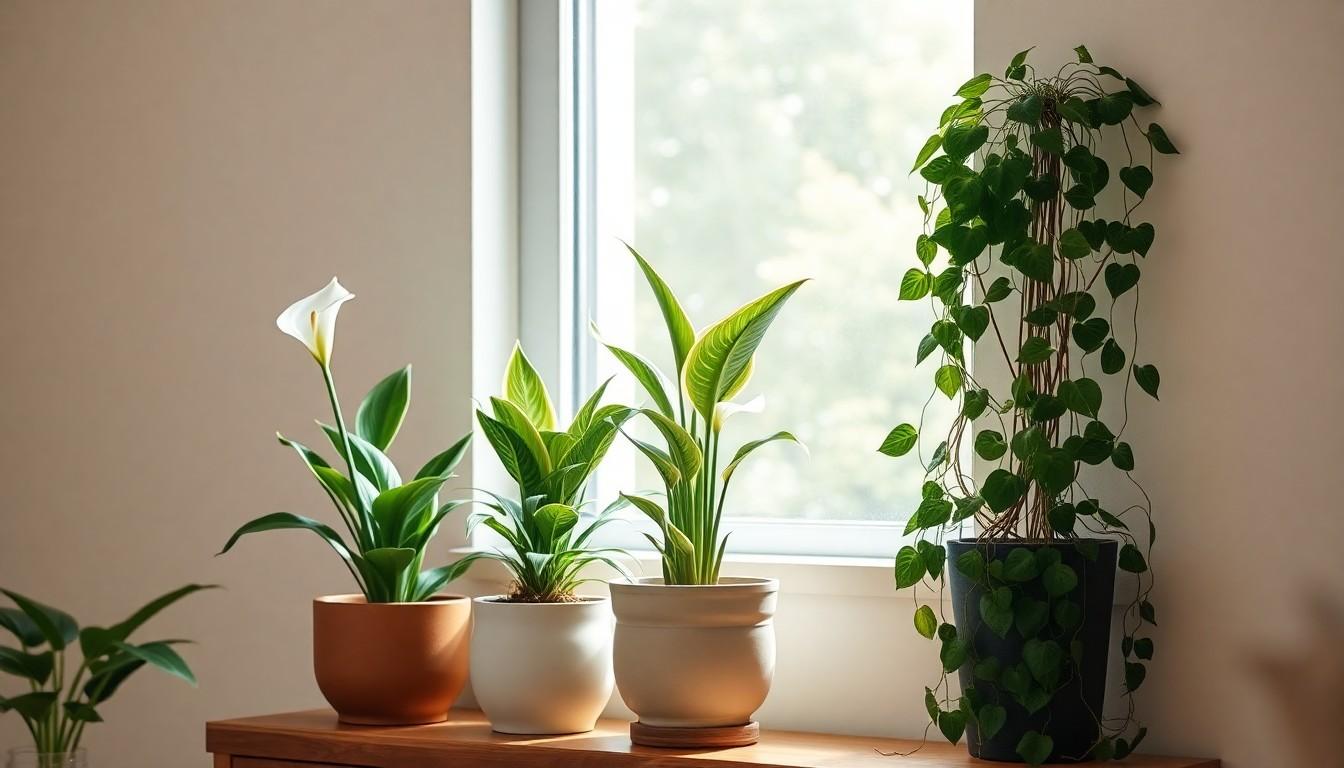The Best Fluffy Pancakes recipe you will fall in love with. Full of tips and tricks to help you make the best pancakes.

Indoor Sympathy Plants: The Perfect Gift for Comfort and Healing
When life throws a curveball, sending a heartfelt message can be tough. Enter indoor sympathy plants—nature’s way of saying “I care” without the awkwardness of a Hallmark card. These green companions not only brighten up a space but also offer a gentle reminder of resilience and hope.
Imagine gifting a lush peace lily or a sturdy snake plant. They’re like the supportive friend who shows up with snacks and a listening ear. With minimal care required, these plants thrive indoors, making them the perfect choice for anyone navigating tough times. Plus, they won’t judge you for binge-watching your favorite show while you sip tea in your pajamas. So, let’s dig into the world of indoor sympathy plants and discover how they can bring comfort and joy to those who need it most.
Understanding Indoor Sympathy Plants
Indoor sympathy plants provide comfort and beauty during challenging times. These living gifts enhance spaces while offering support to those in need.
Definition and Purpose
Indoor sympathy plants refer to specific greenery meant to express compassion. Common examples include peace lilies and snake plants. Their vibrant presence symbolizes resilience and hope, making them suitable for difficult situations. These plants not only lend a serene atmosphere but also require minimal care, ensuring they remain vibrant with little effort. The act of gifting indoor sympathy plants carries a deep message of empathy, encouraging peace in grieving hearts.
Significance in Gift-Giving
Choosing indoor sympathy plants carries significant meaning in gift-giving. They serve as lasting reminders of love and support during a time of sorrow. Unlike traditional sympathy cards that may fade, these plants continue to thrive, offering ongoing comfort. Recipients appreciate the longevity of living plants compared to temporary floral arrangements. Many feel uplifted by the presence of greenery, recognizing its ability to enhance mental well-being. In essence, gifting indoor sympathy plants creates a lasting bond while providing solace to those facing loss.
Popular Types of Indoor Sympathy Plants

Indoor sympathy plants come in various types, each offering unique qualities that convey compassion and warmth. Below are some popular options often chosen for their beauty and symbolism.
Peace Lily
Peace lilies thrive in low-light conditions, making them excellent choices for indoor spaces. Their elegant white blooms symbolize peace and purity, providing comfort to those in mourning. Caring for peace lilies is straightforward; they require minimal watering and appreciate occasional misting. This low-maintenance nature ensures they remain a source of solace for extended periods. Moreover, their ability to purify indoor air adds an extra layer of benefit, making them a thoughtful gift option.
Snake Plant
Snake plants, known for their striking, upright leaves, add a modern touch to any environment. These resilient plants are often favored for their ability to tolerate neglect and low light. Their air-purifying qualities contribute to a healthier indoor atmosphere, promoting well-being. In addition, snake plants symbolize endurance and resilience, which resonates deeply during challenging times. Their hardy nature means they can thrive even in less-than-ideal conditions, offering ongoing support to recipients.
Pothos
Pothos plants are characterized by their trailing vines and heart-shaped leaves, creating a lush, vibrant look. These plants adapt well to various lighting conditions, from low light to bright indirect light. Their forgiving nature allows them to flourish with minimal care, making them perfect for individuals coping with loss. Pothos also symbolize connection and loyalty, reflecting the enduring bond shared with loved ones. With the ability to grow long and cascading, they brighten spaces and uplift spirits, encouraging reflection and healing.
Care Tips for Indoor Sympathy Plants
Indoor sympathy plants require specific care to thrive and provide ongoing comfort. Understanding their needs ensures these plants remain vibrant and meaningful.
Light Requirements
Bright, indirect light supports the growth of peace lilies and snake plants. Each plant type adapts differently to light conditions. For instance, peace lilies thrive in low to medium light, making them perfect for dim spaces. Snake plants tolerate low light but do best in bright, indirect sunlight. Adjusting placement according to lighting conditions encourages healthy growth and prolonged blooming.
Watering Guidelines
Watering practices vary by plant type. Peace lilies prefer slightly moist soil but should not be overwatered. Checking the top inch of soil for dryness aids in determining when to water. Snake plants require less frequent watering, typically every two to three weeks. Allowing the soil to dry out completely between waterings helps prevent root rot in both plant types.
Soil and Fertilizer Needs
A well-draining potting mix is vital for indoor sympathy plants. Peace lilies thrive in a standard potting mix, while snake plants prefer soil designed for succulents. Fertilizer is important during the growing season. A balanced liquid fertilizer, diluted during application, promotes healthy growth. Fertilizing every 4 to 6 weeks helps maintain vigor, especially during the spring and summer months.
How to Choose the Right Indoor Sympathy Plant
Selecting the right indoor sympathy plant involves considering the specific context and needs of the recipient. This choice ensures the gesture resonates deeply with those experiencing loss or hardship.
Consider the Recipient’s Environment
Assessing the recipient’s living space is crucial. Light conditions, humidity levels, and available space can impact plant survival. For instance, a peace lily thrives in low to medium light, making it perfect for dimly-lit rooms. Conversely, snake plants flourish in bright, indirect sunlight, making them suitable for sunlit areas. Additionally, understanding the recipient’s maintenance capabilities enhances the plant’s longevity. Low-maintenance options like pothos fit well for those who might struggle with regular care. Selecting a plant that aligns with the recipient’s environment promotes lasting comfort and support.
Symbolism of Different Plants
Symbolism plays a vital role in choosing the appropriate plant. Peace lilies symbolize peace and purity, offering serene energy in moments of grief. Snake plants convey resilience, serving as a reminder of strength during tough times. Pothos plants represent loyalty and connection, ideal for nurturing relationships during loss. Focusing on the intended message can enhance the impact of the gift. Each plant carries its own emotional weight, so understanding these meanings helps in making a thoughtful choice. This knowledge contributes to the healing process, creating an emotional link between the recipient and the gift.
Conclusion
Indoor sympathy plants offer a meaningful way to express compassion and support during difficult times. Their vibrant presence not only brightens a space but also serves as a symbol of resilience and hope. By choosing plants like peace lilies, snake plants, or pothos, individuals can provide lasting comfort that transcends traditional sympathy messages.
These plants thrive with minimal care, making them ideal gifts for anyone navigating grief. Their ongoing growth and beauty remind recipients of the love and support surrounding them. Embracing the significance of indoor sympathy plants can foster a deeper connection and contribute to the healing process, creating a nurturing environment for reflection and solace.
